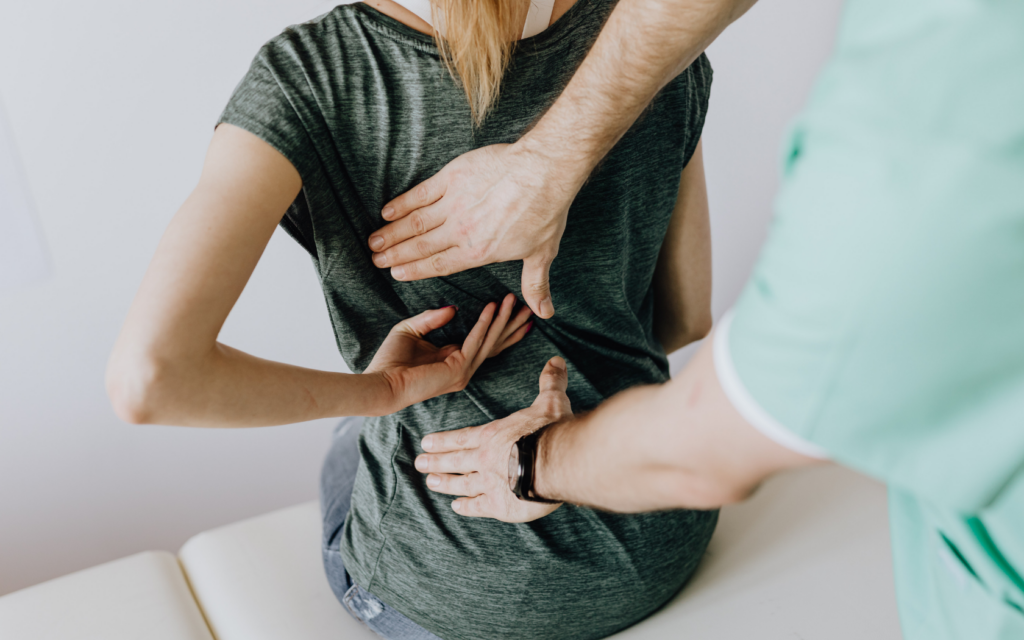Drink more water! If you’re like most people, you’ve probably heard this suggestion a time or two. And well, it’s all for good reason. After all, dehydration and back pain often go hand in hand. But even more important, the entire body is dependent on water; from the tiniest cell, to the largest organ, water is essential for proper function. So it’s not back pain you need to worry about, but the well-being of your entire body. It seems like a small trade-off, right? Drink enough water throughout the day so your body can perform those necessary tasks for overall well-being.
But get this: more than half of the adults in the United States aren’t drinking enough water. In fact, a study of 2,000 people from the US found that only 22% of the participants were drinking USDA’s recommended amount of 8-10 glasses.
We’ll give you a minute to let that sink in.
Water isn’t just about replenishing your thirst. Because at the point of noticeable thirst, you’re already dehydrated. No, water is the ultimate key player when it comes to your overall health. Proper hydration helps regulate body temperature, aids in digestion, and promotes healthy skin, among a slew of other health benefits.
And when it comes to the makeup of our organs and tissues, water isjust as important. So if you’ve been wondering if dehydration and back pain are related, the answer may very well be yes. Dehydration may definitely be a contributing factor to that pesky back pain you’ve been feeling.
Good time for a water break, huh?
How Dehydration And Back Pain Are Related
You know drinking enough water is essential to your body, including your spinal cord. But now that we’ve piqued your curiosity, you may be wondering exactly how can dehydration cause back pain?
Here’s the short answer:
The components making up your spine and back hold quite a bit of water. But if that amount of water decreases, it can seriously impact the movement of the bones in your back. Which, you guessed it, can lead to back pain.
The Composition Of The Spine
Your spinal cord consists of vertebrae which are separated by intervertebral discs. These small, jelly-like discs act as cushions between the bones so they don’t grind together. They’re made up of a tough collagenic exterior (annulus fibrosus), which protects the inner gelatinous material. These little discs play a big role. They act like shock absorbers and add flexibility to the spine. The large water content of these discs make that possible.
And that’s where dehydration and back pain come into play. These discs lose water as a natural response to our body’s movement and activity. At night, the discs are able to retain water from your day’s worth of consumption. However, if you aren’t drinking nearly enough water, the discs will begin to thin. This leads to altered tissue density, increased stress on the discs, and ultimately degeneration. By now, you’re probably starting to see the correlation, and how dehydration can cause back pain.
So What Happens Next?
Loss of water shrinks the size of these discs and they are no longer able to cushion the bones as properly. What are you left with?
Difficulty Moving. In extreme cases, this could lead to complete immobility of the back.
Herniated Discs. Yes, dehydration can lead to herniated discs. This is one of the most painful results of dehydration.
Back Pain. Indirect pressure on the nerves due to small, or thinning discs can cause extreme pain in the lower back.

Dehydration And Back Pain – Symptoms To Look For
If you’re worried that your back pain is the direct cause of dehydration, look out for these symptoms:
- Low energy levels
- Dry skin
- Dark urine
- Blurred vision/dry eyes
- Dry mouth
- Dizziness
- Irregular pulse
- Low blood pressure
The Road To A Healthier, More Hydrated Back
So now you can see that dehydration and back pain go hand in hand. If you were looking for motivation to stay hydrated, maintaining a healthy back is it. If you’re already suffering from back pain and think dehydration may be the culprit, your first step is to drink up! Ensure you’re drinking enough water throughout the day, and not just when you’re thirsty. To keep things interesting, try enhancing your water with slices of fruit or cucumbers, or even opt for a fizzy seltzer.
Next, seek the help of a qualified chiropractor. Routine chiropractic care can help relieve lingering back pain and restore muscles to their original state. Better yet, find a chiropractor that focuses on a whole-body approach. Here at Integrative Chiropractic, Dr. Ladd Carlston focuses on strength-building, chiropractic massage, re-energizing, and always takes a holistic mind and body approach to healing.
Contact us today to schedule an appointment and get yourself one step closer to healing!

